With about 28 million speakers worldwide, Dutch is the third most widely-spoken Germanic language (after English and German, of course!). With Dutch being known for its varied, interesting, and long vocabulary (the longest Dutch word is 53 letters long!), we thought we’d take a deep dive into 14 unusual and delightful Dutch nouns.
Are we missing your favourite Dutch noun? Submit your own entries to Untranslatable, the world’s first multilingual urban dictionary. Not sure how to submit an entry? Don’t worry, we’ve written a blog guide to take you through every step of the way!
- Stress chicken
Stresskip
(stress chicken)
Dutch | Netherlands
A stress-prone person, or someone who stresses a lot.
Deadlines getting too much? You might just be a stress chicken! Don’t worry, it’s not necessarily a bad thing, some people are just more prone to stress than others, and we are all capable of running around like a headless chicken (or a stresskip) at times.
2. Relativeringsvermogen
Relativeringsvermogen
Dutch | Netherlands
An ability to put things into perspective, which happens to be an important quality to have in Dutch culture.
If you are a stresskip, maybe it’s time for you to employ relativeringsvermogen into your daily routine. This is a great value, and will help you to relax a little bit more and not make a mountain out of a molehill.
3. Bomvol
Literally meaning “full bomb”, this Dutch noun is a fantastic descriptor for when something is too full. Does the trash need taking out? You could say that it’s absolutely bomvol for a bit of emphasis!
4. Stofzuiger
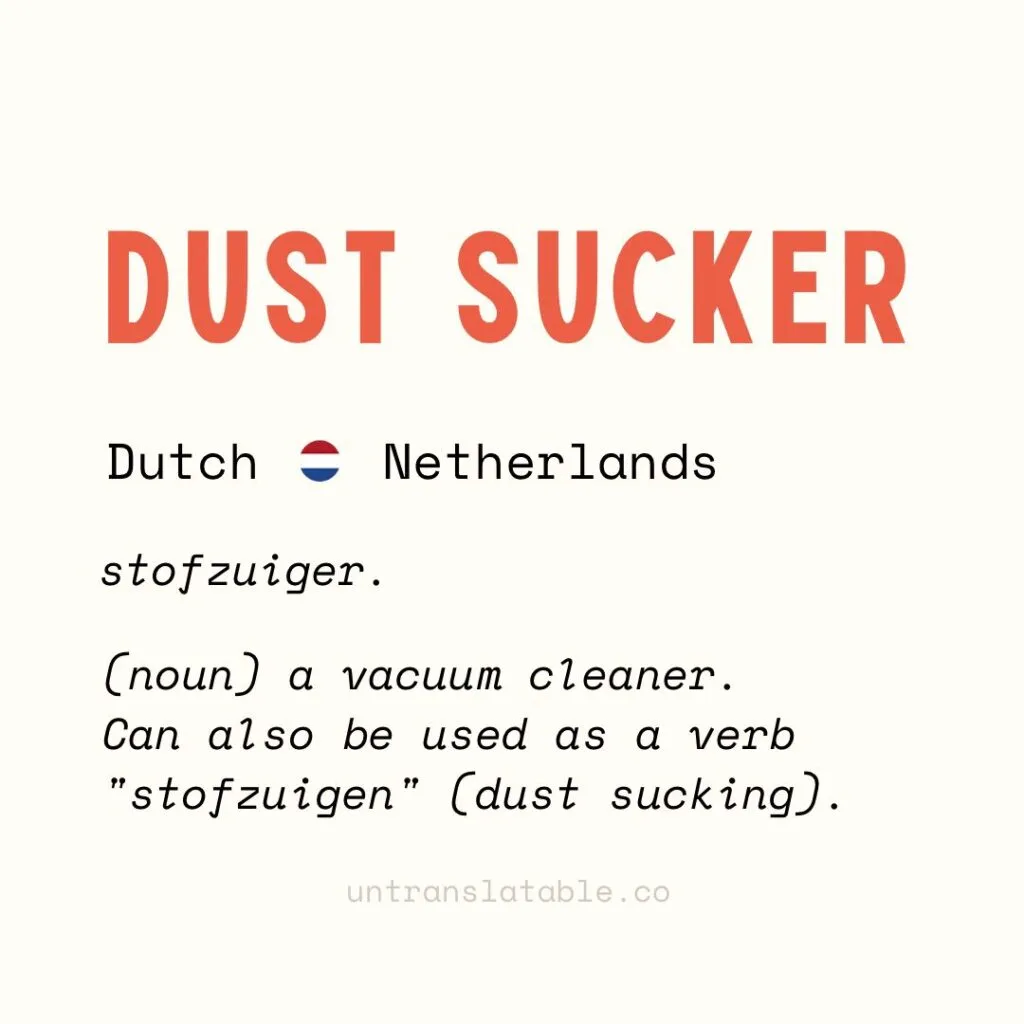
I’ve never thought of the vacuum cleaner as cute before, but the Dutch noun “dust sucker” is just so adorable to describe this everyday household item. Brb, going to refer to the vacuum cleaner as the dust sucker from now on…
5. Klikspaan
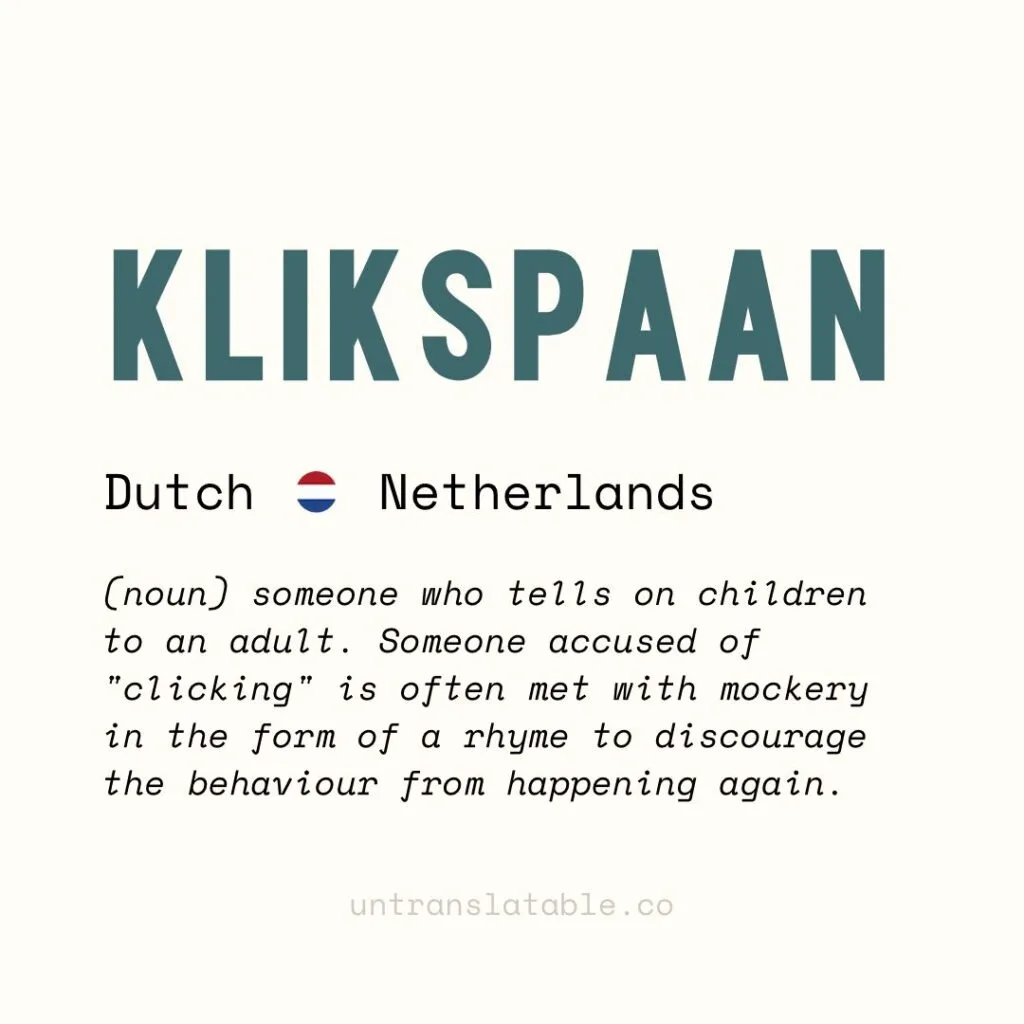
We love learning different cultural equivalents for nouns, which is why we’re going to start using the Dutch noun “klikspaan” instead of “tell-tale” next time we’re fed up of someone telling on others to an adult!
6. Ommetje
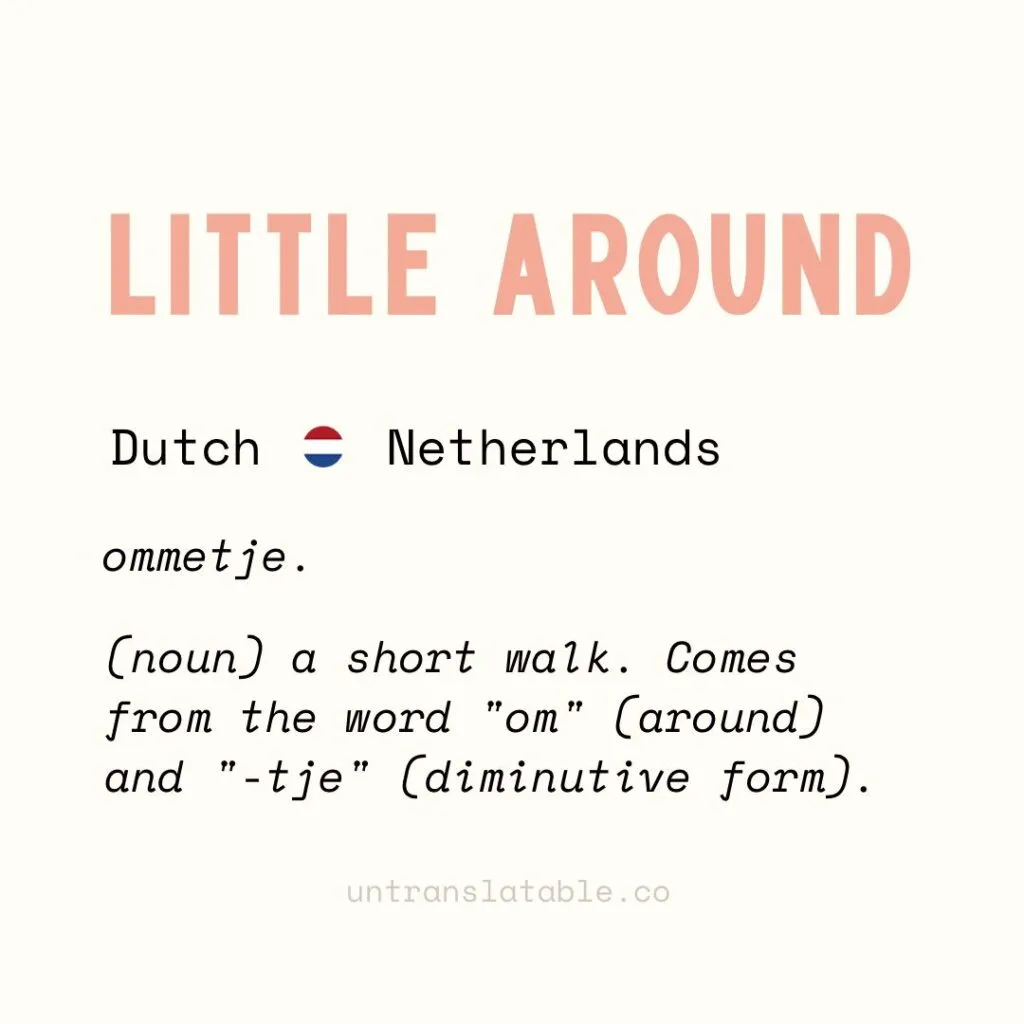
If you want to go for a quick walk to stretch your legs and relax your mind during your coffee break, the Dutch noun “ommetje” (meaning “little around”) is a great way of describing it.
7. Goesting
Goesting
Dutch | Belgium
When you are in the mood for something to eat or drink, sometimes for something specific, sometimes for food in general. Could also be used in an explicit sense.
If you’ve got a craving for something, you’re experiencing goesting! It’s a really fun word to teach friends and family and you can drop it in to conversation very easily.
8. Grapje
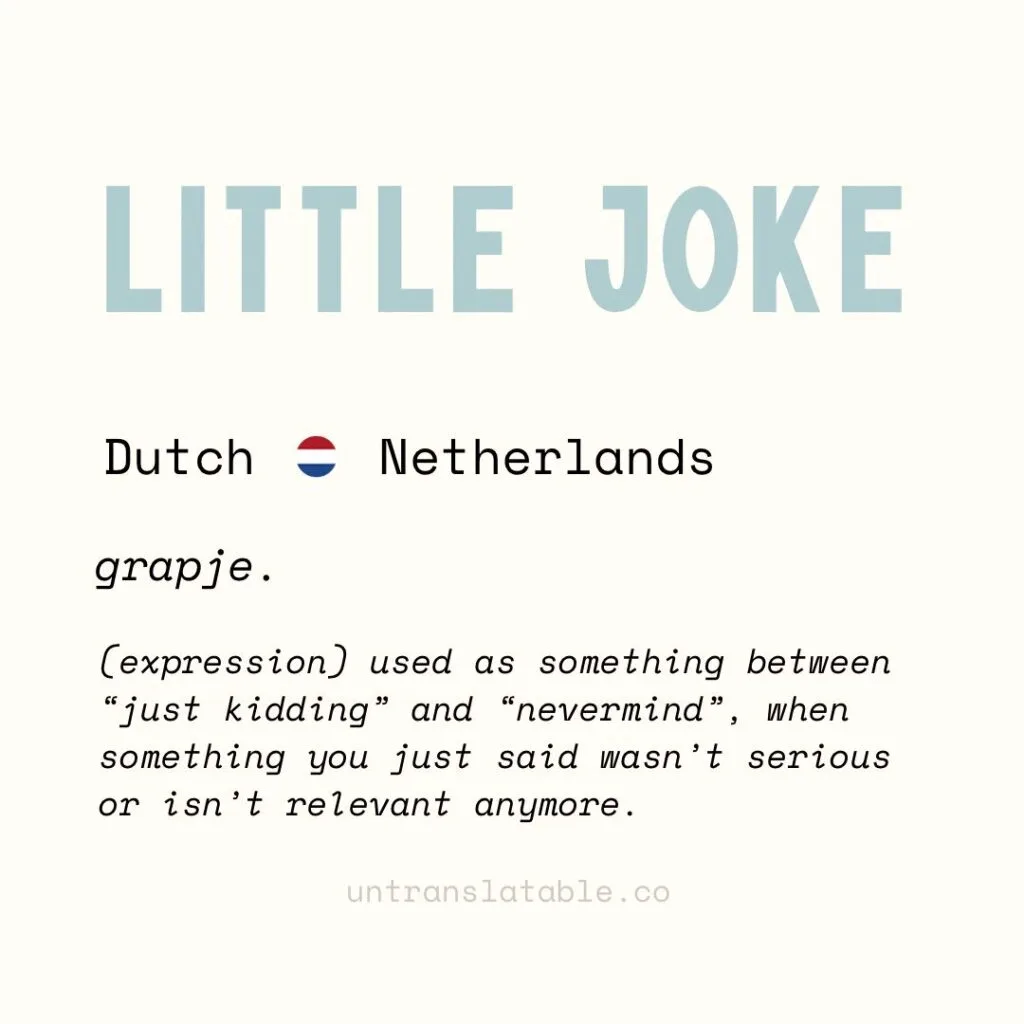
Saying “grapje” in response to someone missing part of the conversation is another lovely Dutch noun that keeps everyone included, whilst also having a very cute literal translation in English.
9. Krotenkoker
What a fantastic insult it is to call someone a beet cooker when you’ve had enough of them! It communicates annoyance, whilst also not being explicit, which is absolutely fantastic. Personally, I think it’s on a par with the great Shakespearean insults.
10. Voorpret
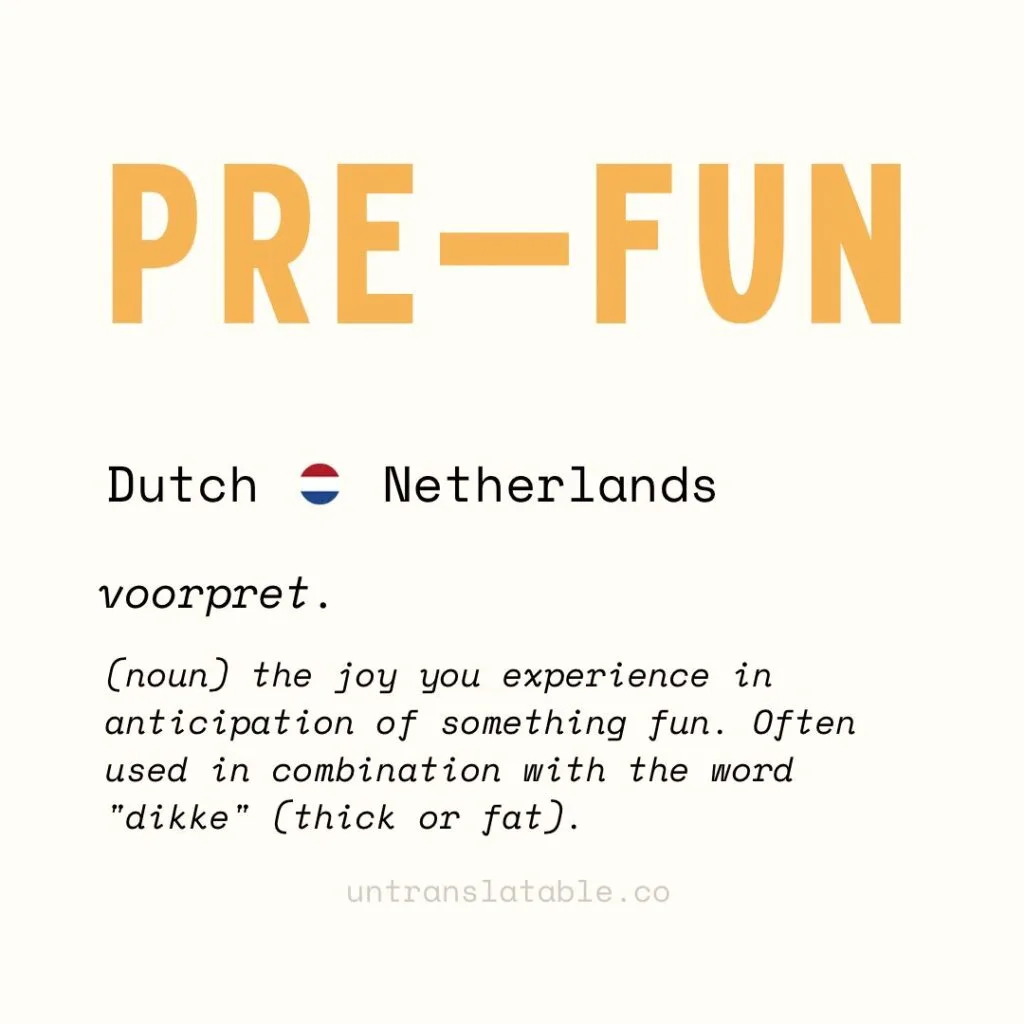
This is my absolute favourite Dutch noun of all time. It’s such a whimsical and optimistic expression and way of describing how you are excited about having fun in the near future. Go on, whether you’re a Dutch speaker or not, we should all use the word “pre-fun” a little more in our lives…
11. Groetjes
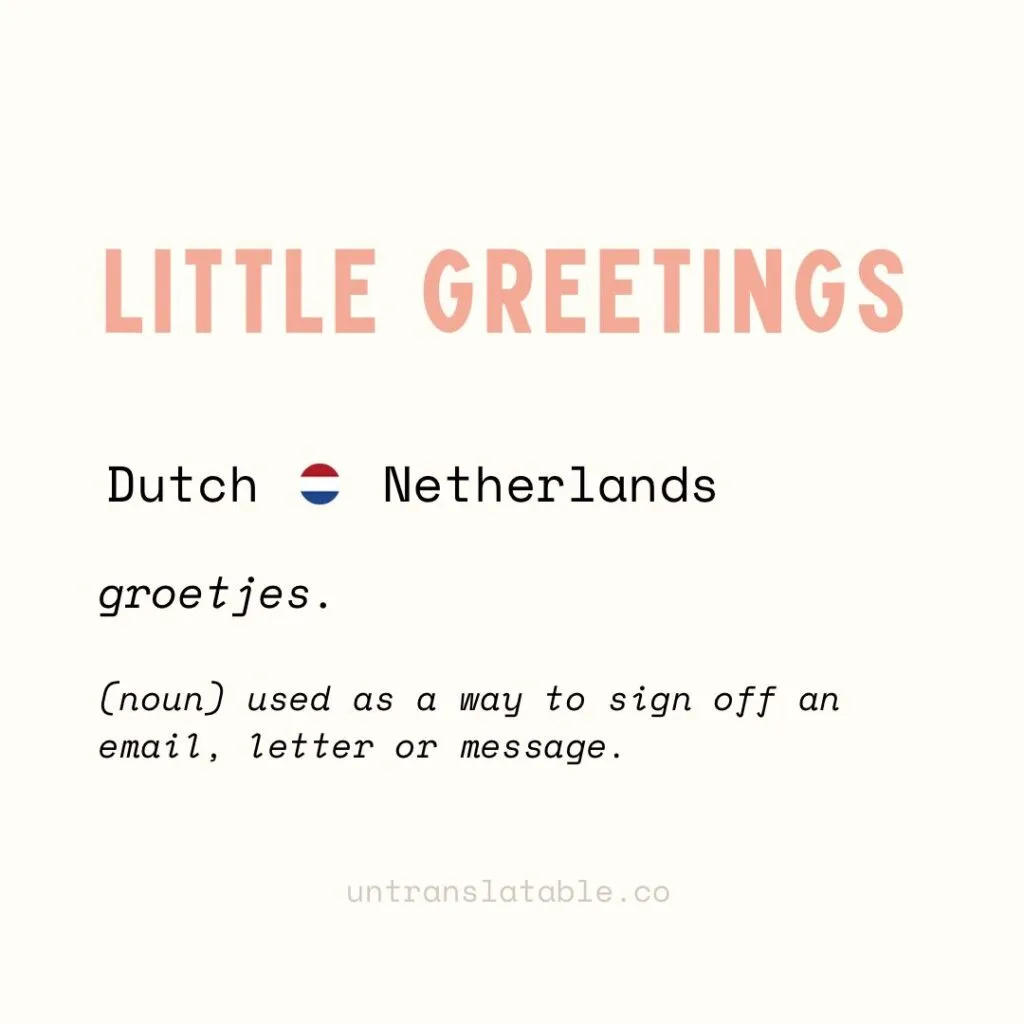
Are you signing off an email or a letter and tired of the classic “kind regards” or “yours sincerely”? Well, many Dutch speakers put “little greetings” at the end of their messages, letters, and emails. If you want to mix up your inbox a bit, maybe you could pop “little greetings” in there, and see how it goes!
12. Komkommertijd
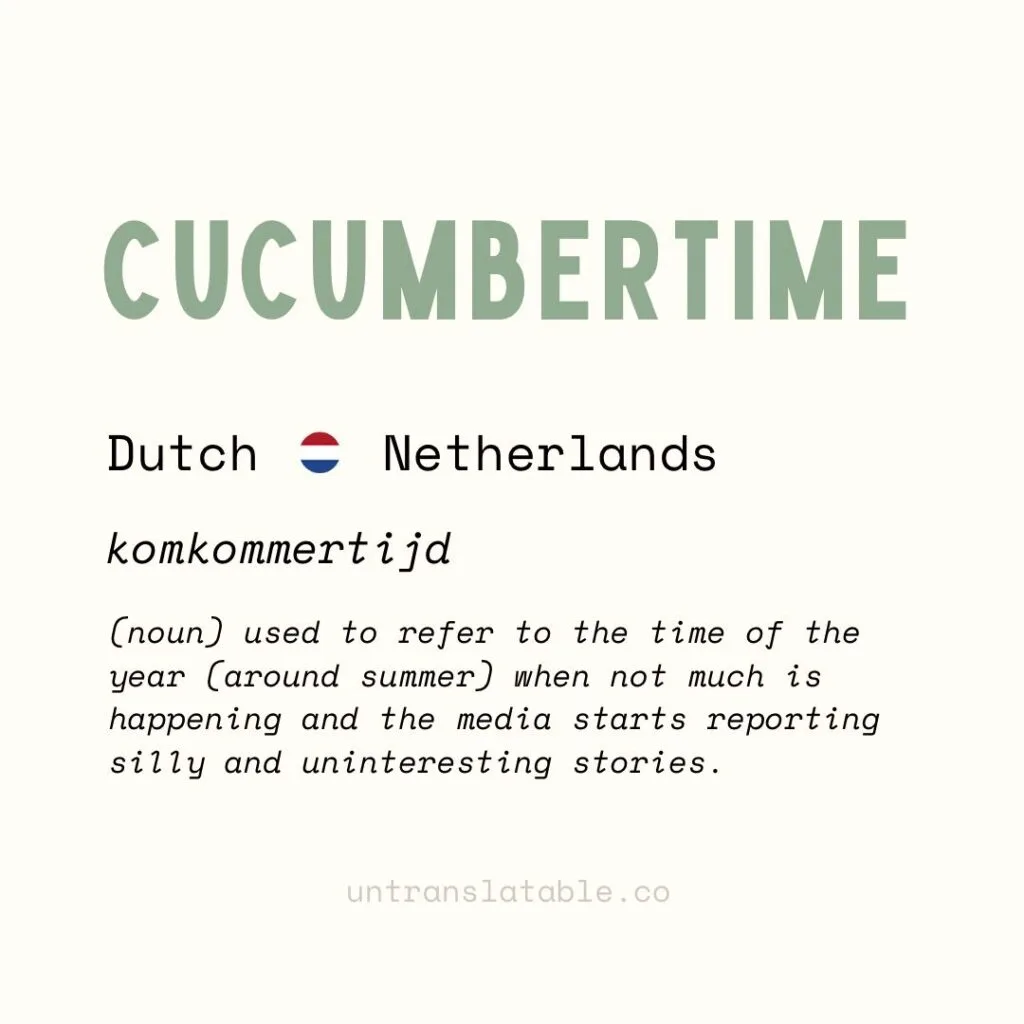
Did you know we’re fast approaching cucumber time? This Dutch noun describes a time of year where funny stories get reported in the news or local media, as there’s not much else going on. Maybe if you’re noticing that this is happening to you, you can tell people it’s cucumber time as well…
13. Moedervlek
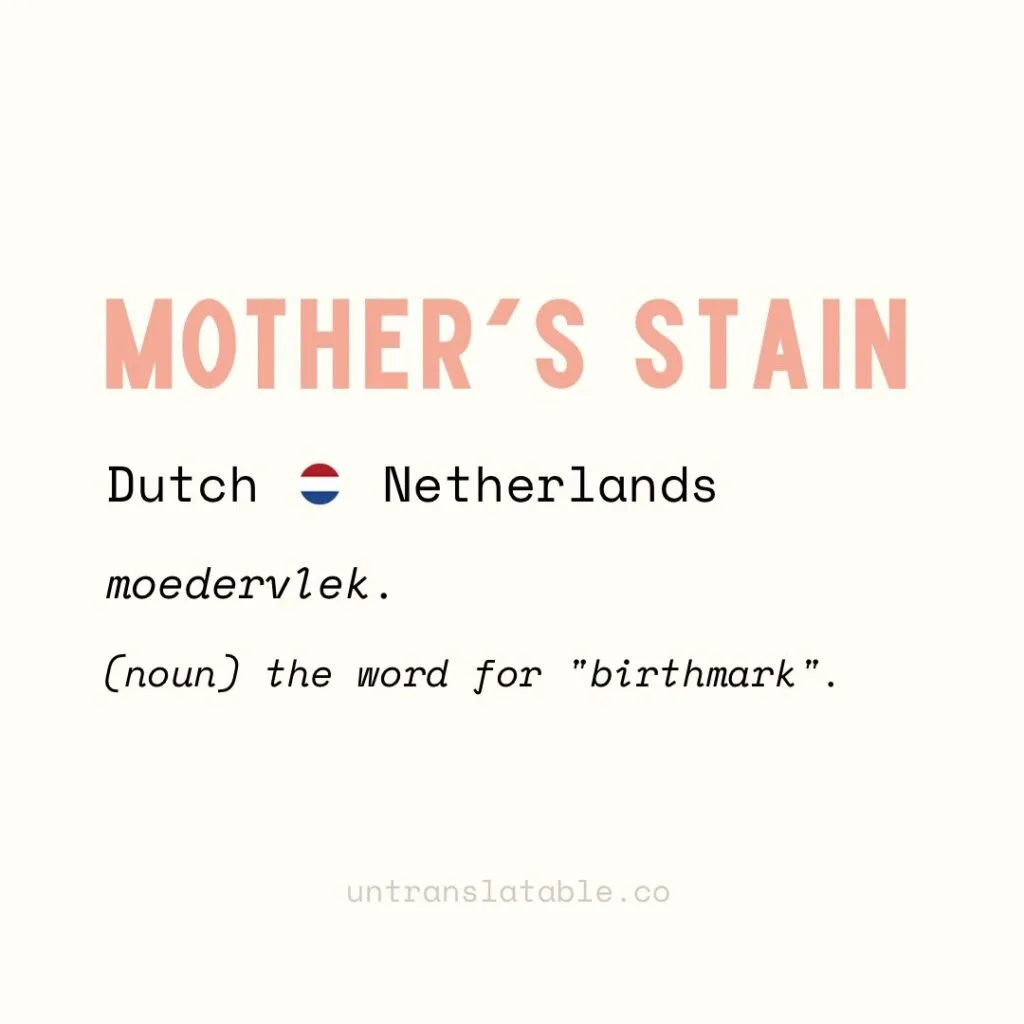
Meaning “mother’s stain”, the Dutch word for birthmark is actually quite sweet and really powerful. It’s quite a nice expression and describes the physical connection between mother and child. Whilst it may sound a little bit gross initially, it says a lot about motherhood!
14. Ezelsbrug
Ezelsbrug
(donkey bridge)
Dutch | Netherlands
A trick to help you remember something. A mnemonic device.
If you need a tool to help you remember something, you’re in search of a donkey bridge! We have no idea why a mnemonic device is known as a donkey bridge in the Netherlands, but we think it’s super cute. I know I don’t need a mnemonic to remember it’s called a donkey bridge in Dutch from now on!
We hope you enjoyed learning all about some of the most unique and delightful Dutch nouns. If we’ve missed one of your favourites from the list, why not submit your own entry to Untranslatable, the first online multilingual urban dictionary?
